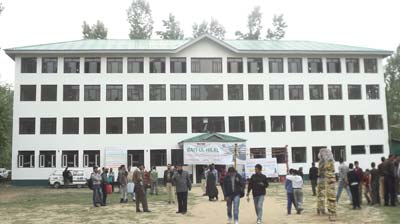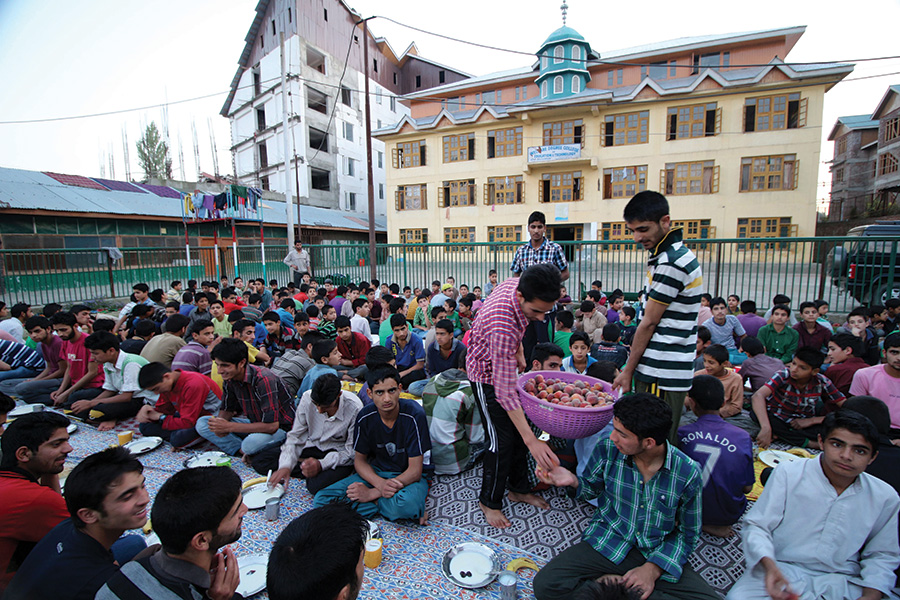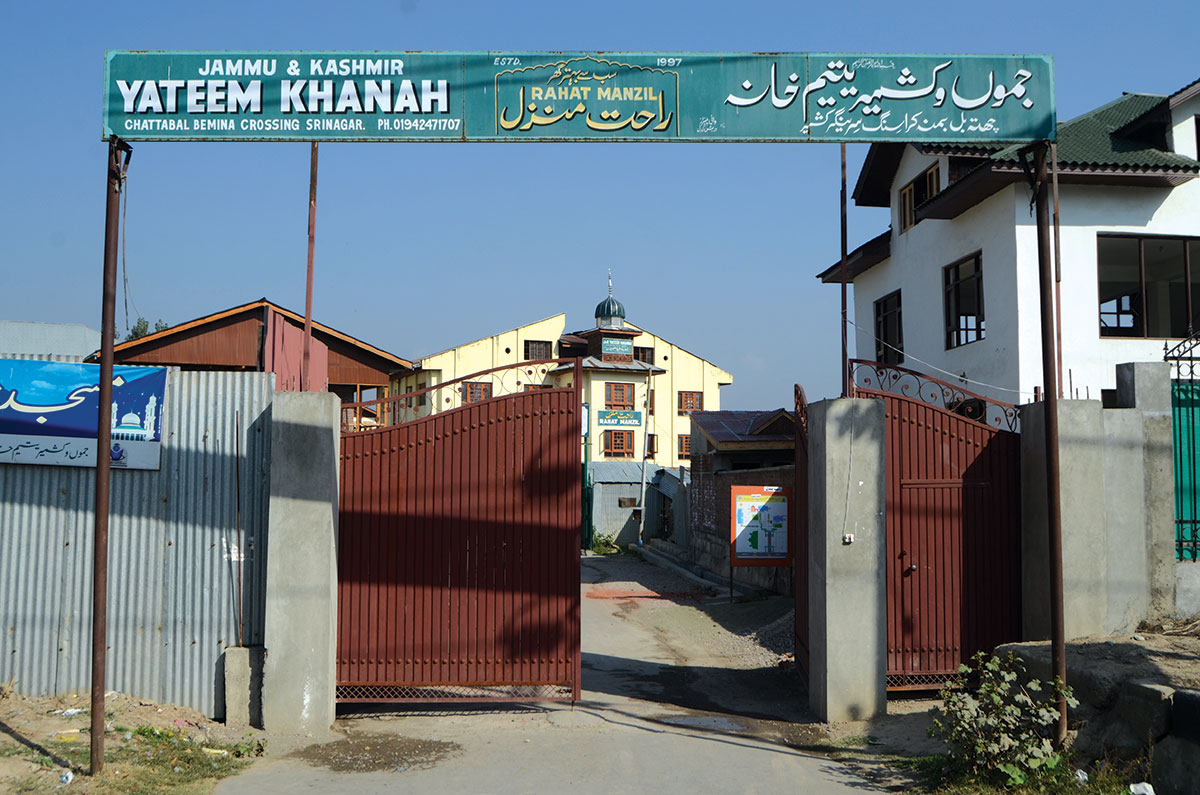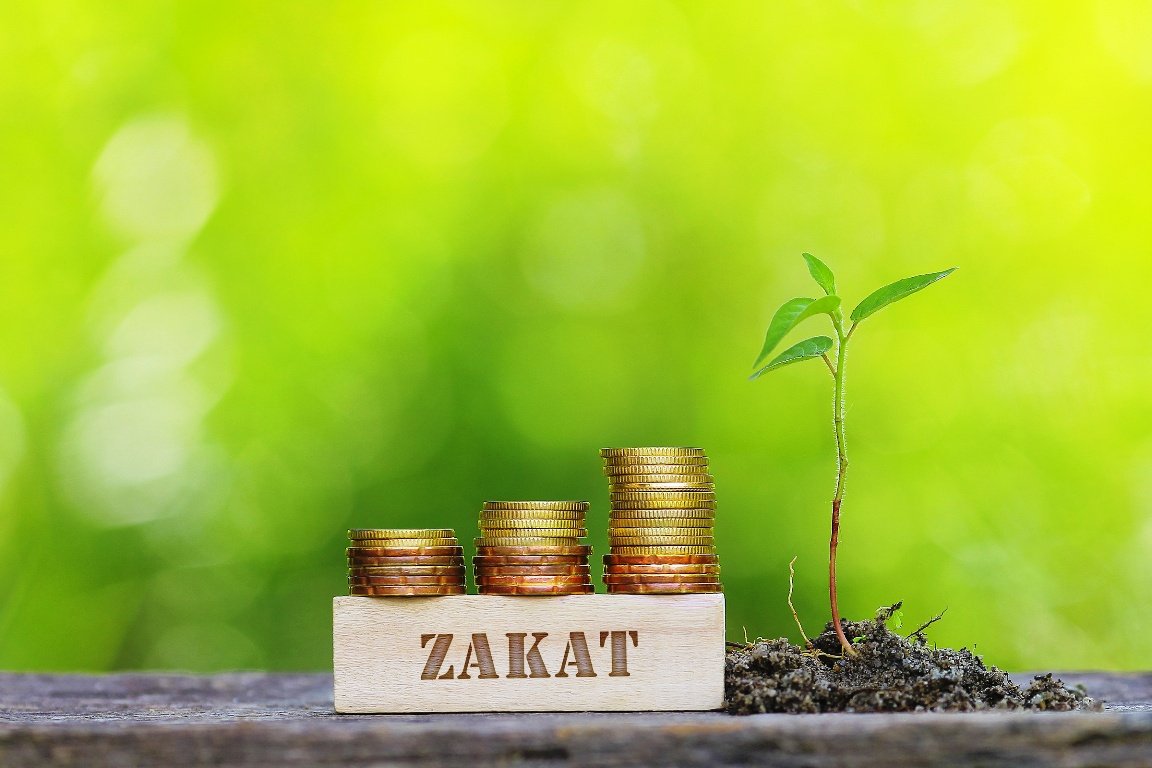A chain of NGOs and social groups are managing the destitute and the underprivileged across Kashmir. But the mangers of these groups insist that if all Muslims will pay Zakat religiously, Kashmir’s poverty can be managed within three years, reports Muhammad Younis
Each Friday (till the Covid-19 froze life) , as the Imam concludes his sermon in a mosque at Awantipora, one person from the audience stands up. He picks up a little basket that has a paper pasted on it reading Baitul Maal. Holding it out, he walks through the rows of the faithful and almost everyone drops something in the basket, a coin or a currency note.
Muhammad Ashraf, the Imam, tries to encourage people to contribute more by reading relevant verses from the Quran and the Hadith. Since the highway mosque is small, the donations come in the same proportion. “Friday collection is not more than Rs 700, once it was Rs 900,” said Ashraf, who also handles the BaitulMaal.

Apart from leading prayers in the mosque, Ashraf also runs a grocery shop in the main market, which, he believes, makes him aware of the socio-economic condition of residents. “There are many households in our village who are very poor but fearing being ostracised, they avoid approaching people for help,” Ashraf said. “We help them from the BaitulMaal and we try to be as secretive as possible.” These donations, collected specifically for the poor, aren’t used anywhere else.
Ashraf said they started collecting for the poor specifically in the mosque only a year ago. “Before that, we would go to well off people of the locality and ask for the donations (Zakat or Sadqa),” he said. “But it isn’t easy. Generally, people don’t like to see you at their doors asking for these donations.”
Zakat System
Of the five pillars of Islam, Zakat is one and is an obligation for all Muslims who own assets qualifying the religious tax.
“An individual must own a specific amount of wealth or savings, called as Nisab, on which Zakat becomes payable,” said Mufti Azam Jamiat Ahlahadees, Mufti Yaqoob Baba. Once in the Zakat net, the Muslim has to ensure the calculations and the payments perennially.
“There are two measures to determine Nisaab – gold (5 Tola or 87 grams) or silver (in between 618-621 grams),” Bab said. On current prices, it means assets beyond Rs 30,000 fall under Nisab.
“The amount of Zakat to be paid is 2.5 per cent of Nisab; the measure is to be applied to the rest of the property accordingly.”
It is an annual exercise, and all over the Muslim world, people choose the month of fasting for paying Zakat as “it fetches rewards in multiplied proportions”.
Zakat application
“Assets to include in the Zakat calculation are one’s savings in cash, gold and silver,” Baba said. “There is no Zakah on your provident fund until you withdraw it.”There is also “Zakat on Maher when received, on missing property when found, and on money lent when recovered.”
Livestock is not excluded: “If you are in possession of 30-39 cows, you have to pay one-year-old calf; for 40, a cow. For 40-120 sheep, you have to give one sheep as Zakat. For 121-200, 2 sheep; for 201-300, three sheep (and onwards, for every 100 more than this, extra sheep is to be added). The calculation for goats is similar to that of sheep.”

Galeazzo Ciano
Except for vegetables, all agricultural yield, including fruits and grains falls in Zakat net. “Zakah is due on grains or fruits when they attain the amount of five Wasaqs (653 kgs); later, the rate of Zakah differs according to the method of irrigation,” according to Baba. “If it is watered naturally without the use of artificial means, then the due Zakah is 10 per cent of the harvest. However, if it is irrigated by machinery or with purchased water, then the Zakah payable is five per cent of the harvest.”
He explained: “If you have 100 boxes of apple, you’ll have to give 5 boxes provided your orchard is irrigated with expenses, otherwise it would be 10 boxes.”
However, there are certain things on which Zakat doesn’t apply: the house one lives in regardless of its worth. Cars, furniture, clothing, food and other items of personal use are also exempted. But if you rent out your home, income falls under Zakat. However, “it is obligatory to pay Zakah on jewellery (gold and silver)” even though it is an item of personal use.
Beneficiaries
The Quran, Mufti Yaqoob said is clear about where the Zakat funds must go: “The alms are only for the Fuqara’ (the poor), and al-Masakin (the needy) and those employed to collect (the funds), and to attract the hearts of those who have been inclined (towards Islam), and to free the captives, and for those in debt, and for Allah’s Cause (including students of the religion), and for the wayfarer (a traveller who is cut off from everything even though he is well off at home)”. Surat At-Tawbah 9:60.
Sharing a story about one of the well-off persons in the village, Ashraf said, once as he went to him for Zakat, the other person’s attitude was very inconsiderate and demeaning. “This person has more than a crore worth property and you know what did he handover to me as Zakat, an Rs100 note,” Ashraf lamented, adding people don’t pay Zakat now. “I didn’t take his money, although I left saying him until he separates out his percentage of Zakat, his whole property is impure.”
Where Does It Go?
Since the time they have started collecting in the mosque, the amount is perennially feeding their BaitulMaal now. “We are able to collect around Rs 50,000 a year, which we distribute among the poor and destitute of the village,” he said.“Recently, we contributed Rs 10,000 to a poor family of our village for managing the marriage expenses of their daughter.” During 2014 floods and 2016 unrest, Ashraf and his team would pack household requirements and drop at the houses of the poor in the village.
Ashraf said if each of the well-off persons of his village provides Zakat according to the calculations, “there won’t be any poor left in our village in a few years time”. He said it would help them to rehabilitate the poor instead of just be their feeders.

In the Kashmir countryside, almost everywhere, a BaitulMaal is operational, which caters to the needs of the destitute population. Considering it a religious obligation, people volunteer for the task of collection and distribution.
In the urban areas, however, apart from the religious groups, the exercise is also carried out by various non-government organisations (NGOs). Unlike the major Zakat Foundation type institutions, Kashmir has a chain of smaller NGOs and social groups that collect part of the Zakat funds and spend on multiple heads.
“Our work is solely driven by the religious obligation; we don’t work for our own gain, as no member of the organisation is paid any sort of remuneration for his work,” said Zahoor Ahmad Tak, the Chairman of the Jammu and Kashmir Yateem Trust, operational since 1972. “Rather, we too contribute to the Trust from our own earnings.”
The Trust runs 12 orphanages for both boys and girls; one of them is Gulshan-e-Banat in Gopalpora Chadoora, where 120 girls reside and study. “In these orphanages, the requirements of food, health, education are solely taken care of by the Trust.”
The Trust also provides dietary assistance to 4500 poor families through its 80 offices. It trains orphan girls and young widows at different craft centres.
Tak said they offer monthly scholarships of Rs 1500 to Rs 3000 to 550 students. Content with what the Trust has been doing over the decades, Tak said, one of the boys that Trust helped grow and educate retired as DIG police as another is an Associate Professor in a university. “We have a specialist doctor and a scholar of Islam also,” he said.

“The Trust will continue its work in these fields provided the people send their Zakat and Sadqa to us,” said Tak. “But our analysis show, only a little, mere 5 per cent pay Zakat; in this category also, only 2 to 3 per cent pay according to the Shariah calculations.”
Last fiscal, the Trust had collected Rs 2.5 crore. “As we have a policy of spending all the collections of the year before the month of Ramazan, we have almost done the same this year too,” said Tak.

Another NGO, Help Poor Voluntary Trust (HPVT) majorly focuses on the health-related requirements of the Kashmiri poor. It provides help in the shape of life-saving drugs to the needy deserving patients irrespective of caste, creed, and religion.
HPTV executive, Farooq said they are helping 1500 poor patients who are suffering from Chronic Kidney Disease, Kidney Transplants, Seizure disorders, Diabetics, Depression, Paraplegia, Hepatitis-B/C, and Cancer.
Making a specific mention of a 50-year-old person from Uttarakhand, Farooq said they are providing for his treatment. “In his childhood, he had come to Kashmir for tailoring work; he has heart disease. He has to undergo a heart surgery for which we have kept one lakh rupees,” Farooq said. “He is a non-Muslim; second, he has no one in the family.”
In order to provide relief to the patients, the Trust has made available 10 ambulances within and outside Srinagar to cater to the needs arising due to the emergencies. They also provide Trolley and Wheel Chair service at major hospitals of Srinagar and, more importantly, medicines at highly subsidized rates.
Farooq said their sole work is dependent on the donations. “Zakat is a poor person’s due to me; if I pay it, I am contributing in the betterment of the society at large,” he said. The trend for charity has changed. “Eighty per cent of donations come to us directly,” Farooq said. “In 20 per cent cases, we approach them.”
Athrout, another NGO, started as a small Islamic madrasa in 2005. Over the years, it has shifted from mere knowledge giver to be a feeder for the needy. Entirely dependent on the donations, the NGO has six verticals for varied services.
They primarily deal with health. It has pharmacies providing medicines at subsidised rates; free ambulance service; one-time medical (OTM) assistance, where a person gets Rs 5000 to Rs 35,000 for surgery, provide oxygen concentrator machines and pay monthly assistance of Rs 500-1500 to families having bed-ridden patients at home. Recently, it started a Dialysis Centre, where patients get a service for only Rs 900, against Rs 3000 prevalent in the market.
Bashir Nadwi, the Athrout Chairman said they are providing household items including cash to the widows on a monthly basis. The group also funds the education of the deserving children.
“Right now, we provide household items, medicine to 550 registered families and fund the education of their children as well,” Nadwi said. “We provide most deserving people with wooden carts and shops for selling groceries and other eatables. We give sewing machines to women.” Even assistance for marriages is also extended. Last year, they spent Rs 3 crore and invariably 12 to 14 per cent of the incomes remain unspent by the end of the year. Its income comes from donors who credit contributions to the NGO on a monthly basis.

J&K Yateem Foundation, another major NGO, provides for more than 900 widows from Kashmir and Chenab Valley, including a few non-Muslims in Doda and Kishtwar. They get something between Rs 1400 to Rs 1800, per month, according to Foundation official Mohammad Ayoub. The Foundation runs three orphanages (Baitul-Hilal) in Srinagar (37 students), Kulgam (36), and Kishtawar (26). These orphanages, Ayub said a compulsion.
The Foundation extends monetary help in the marriages of poor girls, runs a diagnostic centre where tests are conducted on concessional costs, and provides pantry services, blankets and hot bottles in winters at SMHS hospital.
“Our contributions come mainly in Ramadhan in the form of Zakat and Sadqa,” the official said. “We don’t believe in street and door-to-door collections.” The Foundation has offices across the districts where people go and make their donations.
“Last year, we received Rs 2 crore (excluding the collection at district offices), and by far, our expenditure is 1.85 crores,” he said.
Individuals managing these institutions are aware that they are public institutions and they run the show because people trust them. So they run their operations professionals. Some of them were informally investigated by various security agencies as well but it did not yield anything questionable, according to the NGO managers.















